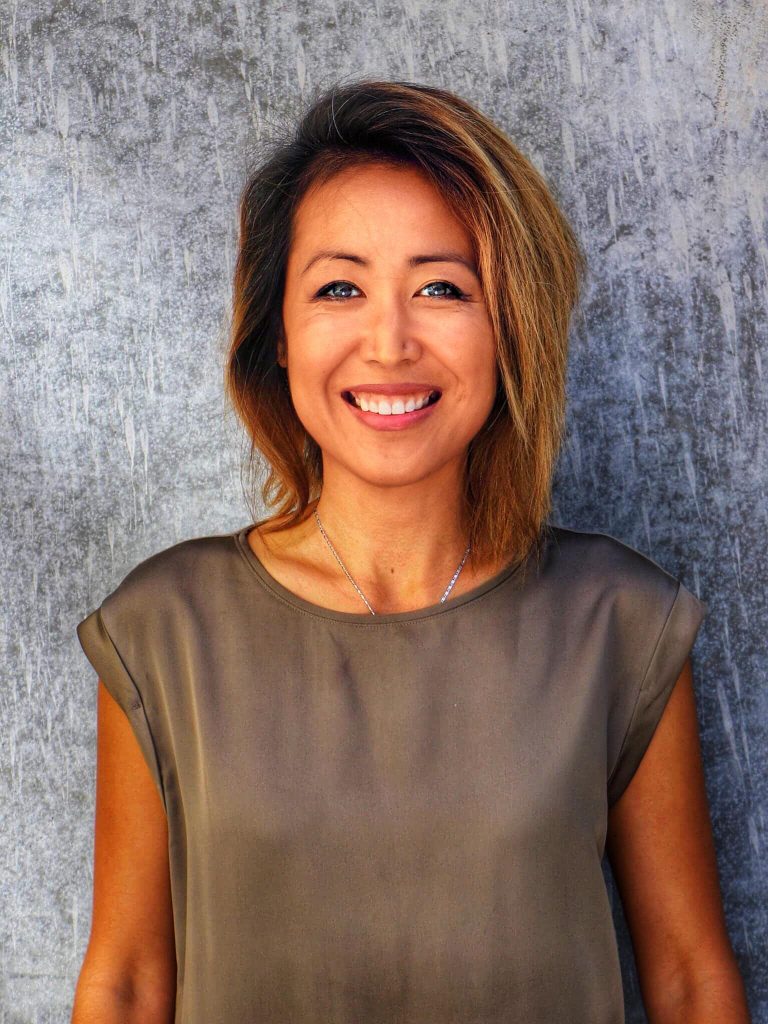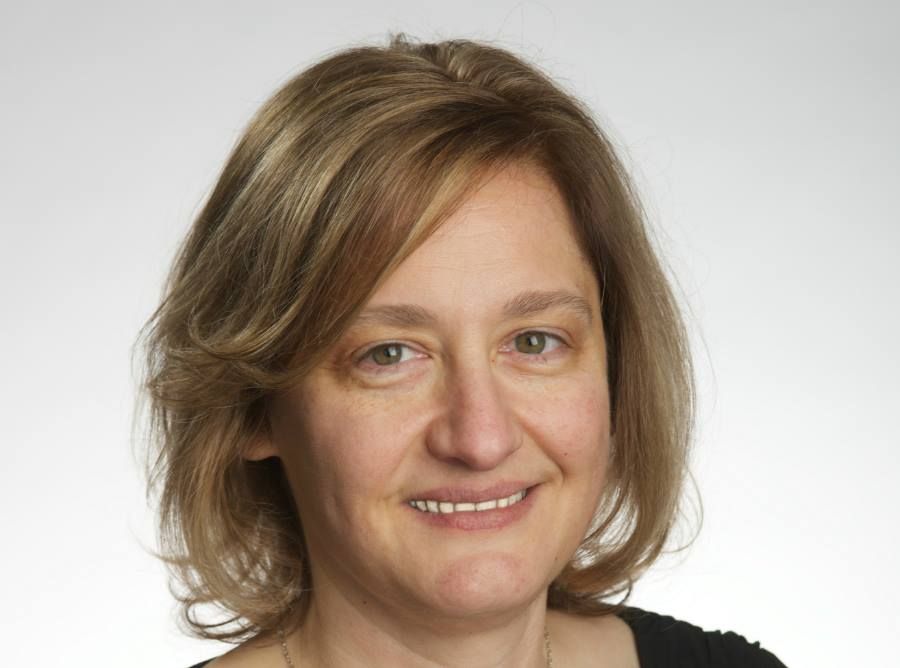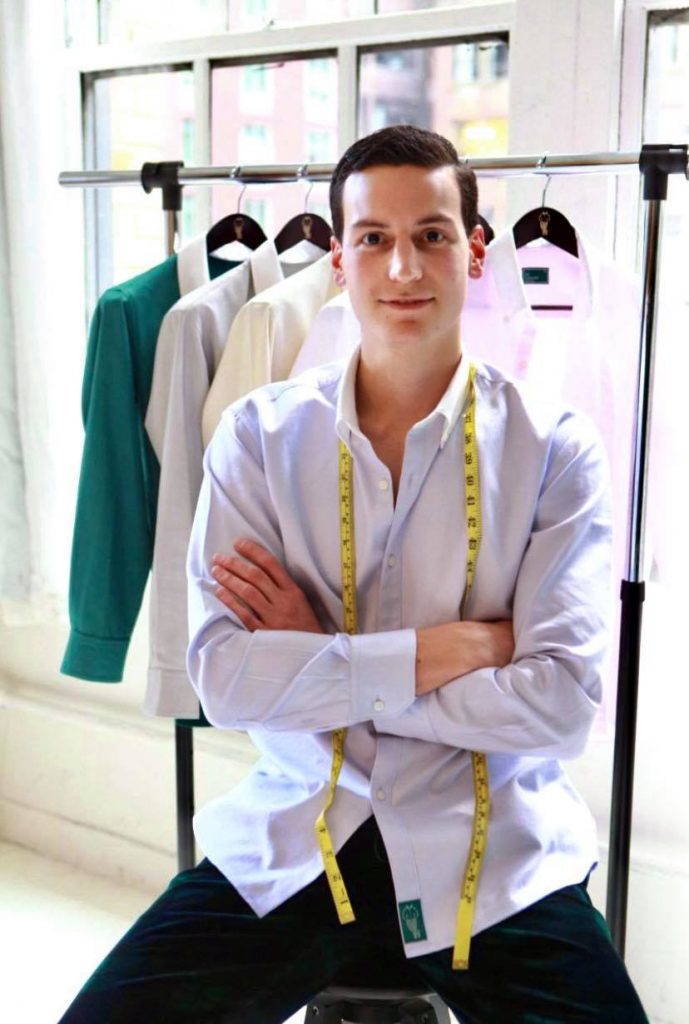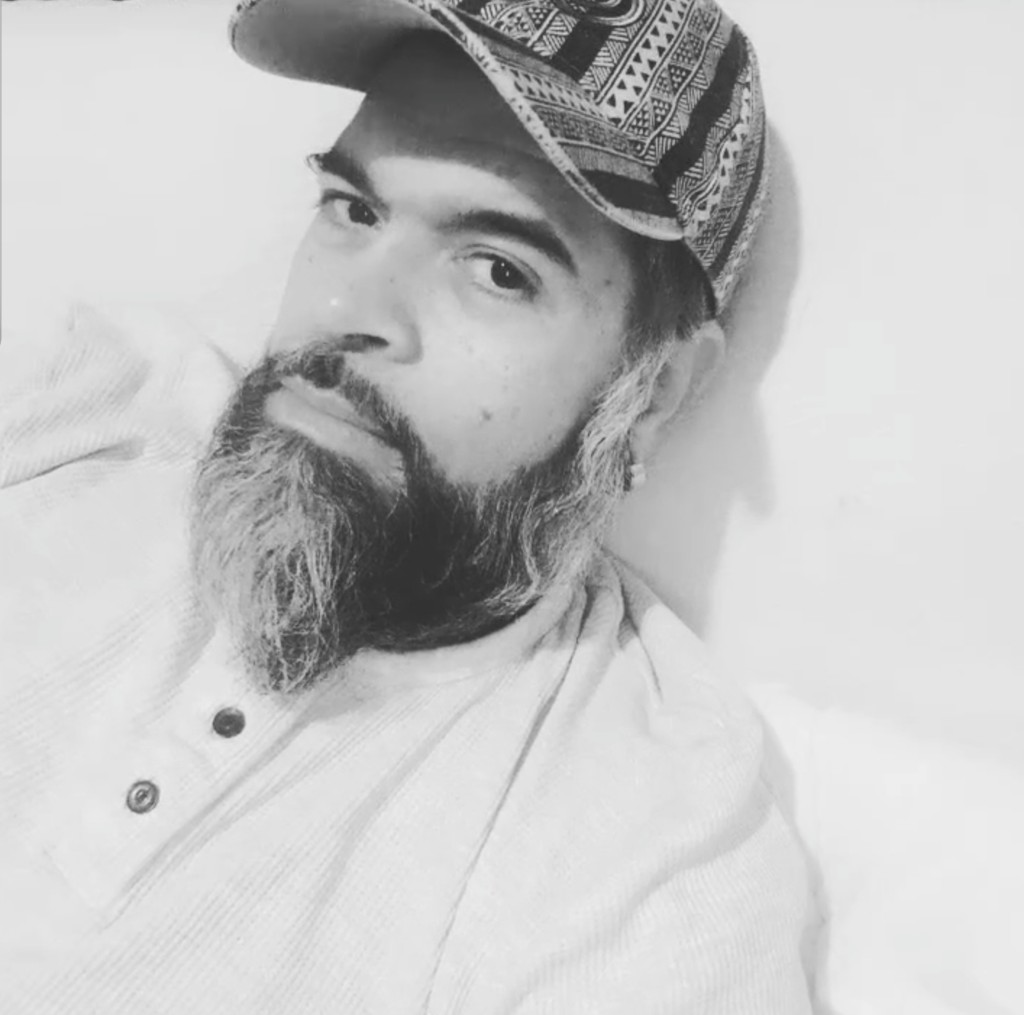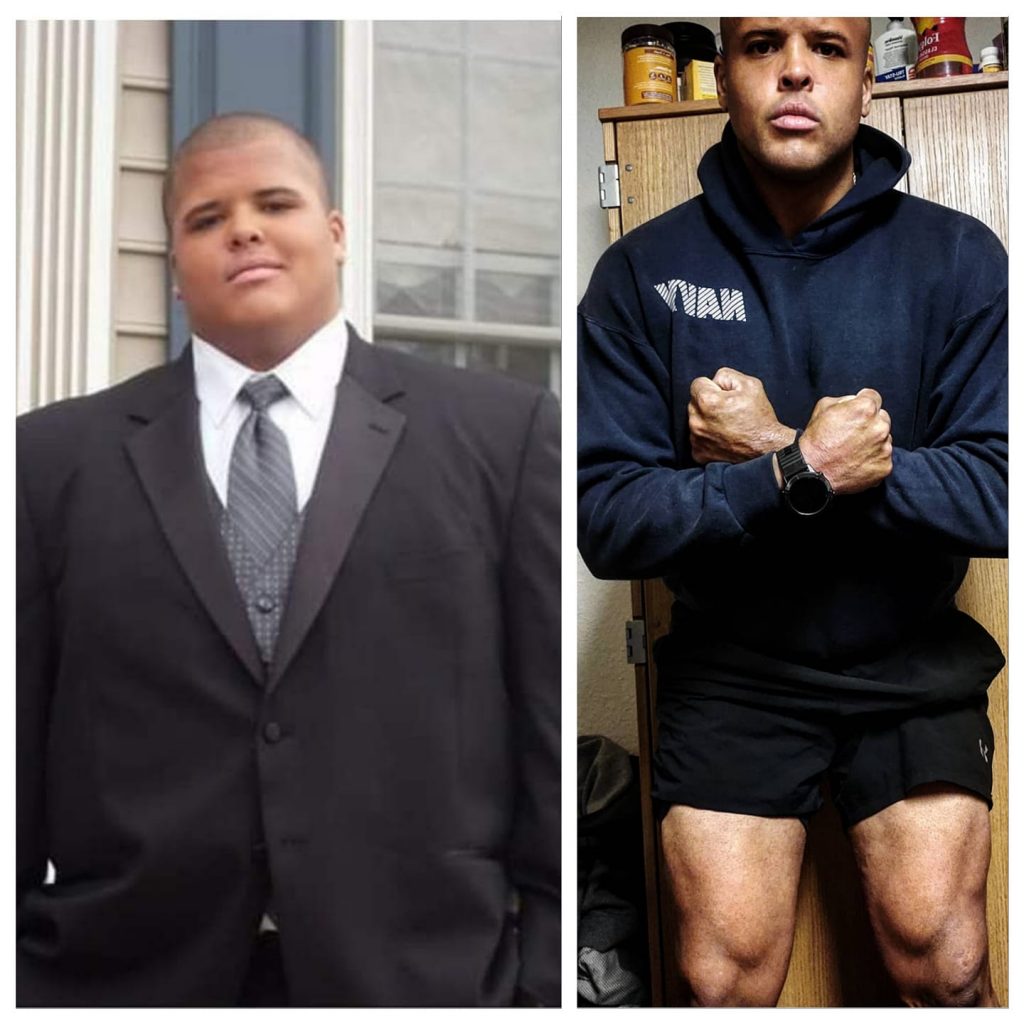Her mom died the day before she recorded this podcast. And yet, she showed up. She showed up to the United States from the Philippines and has been chasing the dream. This is Cristina Cruz Soltesz‘s story, and it’s awesome.
TAMAR: Hi, everybody, today I am enjoying somebody else’s outdoors. In my podcast, we got the audio and the video going on this time around, and I have Christina Cruz Soltesz. She is sitting outside in a chilly weather. I’m not entirely sure where but I am going to learn. I will say that she has a cool view. I will say that I am recording this podcast indoors because I sort of beholden to that but with the equipment that I have. But where are you? Thank you so much for joining.
00:50
CRISTINA CRUZ SOLTESZ: Hi, Tamar, this is Christina and I am based here in San Francisco, California. It’s not always as sunny as I like to enjoy the days, but these are early. So, who knows maybe in a little while the sun’s going to come out? And yeah, I’m enjoying the outdoors, a great time to breathe some good air and catch all of you and your viewers or your listeners.
01:23
TAMAR: Yeah. Well, I forgot it’s early there. It’s 9am. So, you’re obviously not peaking in your day. I’m sorry for asking a clearly weird question, but what is the weather like in spring in San Francisco? I assume that you’re kidding the 70s now, or like in the 50s and the 60s because you are wearing a sweatshirt?
01:50
CRISTINA CRUZ SOLTESZ: Because it’s like I said, there are days when at this time and even earlier the sun is already showing up. And you can see it in the windows, you feel it once you go out and you walk around. So, we have microclimate here. It’s kind of tricky, which part of the city you’re in. And then even when you say spring and everybody kind of associate the city with fog. It’s not really as predictable as we like to envision it with how the city is described. Again, it’s just these microclimates, the timing, and the changes that’s happening right now. So lately, I’ve been able to walk around and enjoy some sun. And yet, there are days I can’t remember how many times it rained. I don’t even remember experiencing rain. So I’m getting a lot of sunny days right now and cloudy or days with fog.
03:03
TAMAR: I just can’t imagine; I grew up in Florida. So, my comparison is South Florida. But if it was May 14 in South Florida, I’d be outside wearing shorts. And probably these days I’d be like naked because global warming made it so that I’m so high.
03:22
CRISTINA CRUZ SOLTESZ: Yeah, you go a little bit towards the Bay Area. Of course, you get a lot more sun. But hey, there’s a different vibe in the city. It’s different population here. I’m enjoying every chance that I can.
03:41
TAMAR: Yeah. Yeah. So let me ask you another question about your area. Like what is it? We’re still in the midst of Coronavirus here. And I’m kind of curious to hear; I know that there was an outbreak in your area. I’m not sure how significant it was and how the impact direct to you. I’m in New York. So, we definitely had, in a big way. But how was it? How has it been over there?
04:05
CRISTINA CRUZ SOLTESZ: Before I even understood what allergies meant having moved here, I find that people have always been hyper cautious of so many different things and allergic to stuff that you never even realize exists. And so, I think it’s just consistent reaction and way of dealing with the environment and with each other. So, there’s not much change and how the kind of people that chose San Francisco or we’re really here or moved here, interact and how they respond to something like that. Like I said, it’s just natural for a lot of people here to be ahead in terms of precautionary measures. So that’s how, given the density of this place and the size of it. Right? That is California.
05:19
TAMAR: They think New York should have figured it out, but they didn’t.
05:25
CRISTINA CRUZ SOLTESZ: And I am hearing that in Korea now, after they lifted the restrictions and gotten back to normal, or something that’s hitting them again, there was a moment where they’re the stars after they were the poorest one. That’s part of all the other countries that were looked at as the source of all these and all that.
TAMAR: Right..
CRISTINA CRUZ SOLTESZ: So, I try not to get too caught up in all these things. I think it’s just too intense right now. And its important to just focus on the things that are really important. Right?
06:12
TAMAR: I definitely would say that’s how I feel the politics. I don’t focus too much on it. In terms of the Coronavirus, I was sort of the same way. I had the cognizance, I had an awareness of it, and then all of a sudden, it hit my community. And all of a sudden, we had to shut down and I ended up having the virus. So, once it affects you, it’s insane. But what I think important is that, like you say, you need to be hyper vigilant, but you should not necessarily be dismissive of it. And it sounds to me that the attitude that you have is that “I have an awareness, I’m going to practice, I’m going to be smart, but I’m not going to be ridiculous, like half of the world that’s in denial that things are even happening and let’s walk around and not put other people at risk.” That is an attitude I don’t prescribe.
06:56
CRISTINA CRUZ SOLTESZ: Yeah.
06:58
TAMAR: Okay, cool. So, tell me what you do. Where, what, and I assume you have some trajectory of how you got to where you are today. So, tell me a little bit about what that look like.
07:12
CRISTINA CRUZ SOLSTESZ: Oh, it’s a real journey. So, I was born and raised in the Philippines, and in the province. I was really in a similar space of many who were very down because there’s some sort of a disconnect in your realities, or you’re going to say, college and all the great stuff. Then back home, you experience something so personal, that does not connect with what you have, or that you’re able to access. So, I just couldn’t keep going in the way I normally function. And so, I just said, I’m going to let go of this beautiful haven or paradise, and I’m just going to be there where this is bothering me. So, I’m back and then just kind of spend time doing that. Then at some point, a person connected me virtually during the beginnings of the internet I suppose, or my familiarity with the internet. At the really earliest stage, someone virtually connected with me, who comes from an extremely techie world, and a geek at that. And then the culture is also like more European, and just very different from mine. And so, because of that interaction, I ended up creating these artifacts that I’ve never really done before where I brought the tribe groups in the mountains. The Philippines is made up more than 7,000 Islands. So, what I did was, I connected a couple of different artists and put together like a four-day art festival of some sort where there’s workshops and there’s theater musical, there’s martial arts, there’s all these different galleries. All these different activities in four days that I was able to get completely sponsored. And having done that, I had no background and doing something like that, I just didn’t know that it was not a natural thing for everyone. I just sort of wanted to have an outlet. All the things that I was experiencing inside, puppets show what I want, if I was good there, or if I was dreaming that someone would give me a gift, an experience that I could never have imagined for, or see. And so, from there, the person that inspired me or showed me that I had it, that I could dream, create something that was sort of magical. I got invited further and then from then on, the next thing, I knew, I have this whole new life here in California. Now my goal is to be able to link, share and be the source of that Golden Gate Bridge spirit that shares my experiences and accomplishments here back home as a jumping point. But everywhere else where I can, creating that relationship and that whole because when you live the way I migrated, it’s a certain shock. People who never experienced that transition probably not understand that it involved so much during that journey and the processes that go through.
TAMAR: Right.
CRISTINA CRUZ SOLTESZ: And it’s just like really, you’re waking up every day and thinking give me that rest. So now, here me use outdoor views, right?”
11:57
TAMAR: Yeah. Well, it’s amazing. It’s amazing. Coming from the Philippines is a big deal, a lifestyle. The standard of living, I mean, coming from there especially, got to be crazy. My husband went to Cambodia in October. And just the difference, you could buy a chicken sandwich there for $3. And you buy it here for like, 15. It’s crazy that the hotels are $7 a night in the normal hotels. And those four-star hotels, it’s good.
12:36
CRISTINA CRUZ SOLTESZ: I can promise you one thing. It’s disorienting.
12:42
TAMAR: That’s a very fair way to say it. So, I’m sure for you, you must have had some massive culture shock in terms of everything.
12:50
CRISTINA CRUZ SOLTESZ: It’s just the expectation. I think it’s more than the expectations of people. Who you think that you should anchor on, or anchoring yourself to and the reality is a nation that is beyond that, and it’s really what you make of it.
13:10
TAMAR: Right? Yeah. So how long ago was this that you came to California?
13:18
CRISTINA CRUZ SOLTESZ: It was like the y2k craziness where they say, “Oh, 2000 digits, everything is down because of the binary code.” And this guy was in panic. I remember I was in Hong Kong. It was a fantastic trip and my mom was “You better get your ass back.”
13:44
TAMAR: That’s so funny. Oh my God. It’s like, “Wow, look at you. You look like you’re not that.” Like this happened 20 years ago. I will say that.
13:54
CRISTINA CRUZ SOLTESZ: Yeah, it’s fine. Like, quite a ride.
13:59
TAMAR: Well, that’s amazing. I’m going to say that’s very, very cool. You get to travel a lot. Do you have your family still there?
14:12
CRISTINA CRUZ SOLTESZ: It’s a very good question. I do have family there. My mom actually just passed away. She passed away yesterday.
14:23
TAMAR: Oh, what? What do you mean the podcast today?
14:25
CRISTINA CRUZ SOLTESZ: Yeah.
14:26
TAMAR: I am so sorry.
14:29
CRISTINA CRUZ SOLTESZ: Here’s why. If there was something that I can share with my mom right now and that’s going to crack her up, it’s this. Exactly the way we roll.
14:40
TAMAR: I love it. But at the same time, I’m so sorry. We’re like another side of the country. And I just oh, man.
14:47
CRISTINA CRUZ SOLTESZ: Yeah, and if you imagine this time where COVID is a reality and an experience beyond your wildest dream for the people in those type of countries, it is definitely not something you would want to miss, or you would want to not know about. It’s just like, it’s beyond. And that’s why I think it’s even more compelling for me, given that the things that I watch from far away as somebody who decided to chase the dream, be part of that rainbow. Then, look at the other side and say, why? And then all of a sudden, you’re wrapped up in that what, and that how, and that why. And then you start looking at yourself and thinking what am I going to do? And that’s where you see yourself rise up about anything, even yourself.
TAMAR: I love that.
CRISTINA CRUZ SOLTESZ: And that’s just how you gotta figure it out. What a scooter.
15:56
TAMAR: I like it. I like it. Yeah, let me tell you something. So, I know that the Coronavirus is now a global thing. And the world, every single country is reacting in a certain way. But at the same time, I take the same attitude. This is unprecedented, have to see to some degree and I think this word is offensive to some people. But it’s cool. Like, we are living something that is freakin historical. It is the perspective that you have on it. First of all, we’re all living it together. But we’re living something so incredibly different together. And I think that particular perspective is so important. I think that instead of everybody saying “Oh my God, we’re all in the bad place, like let’s be sad. Is it tiger, chicken pooh?” let’s jump around. Let’s milk the presence for what it’s worth. Find the silver lining, try to do things that you can do while you’re living that moment. And eventually we will go all living our lives the same, almost the same way that we used to in the past. I think a lot of people don’t look at it with that perspective. They look at it as oh, my God, it’s the end of the world. Listen, it’s not going to last forever, we’re all going to get through it. Things are going to suck for a while. I mean, I was in depression, I was depressed for 10 years. I didn’t really have an awareness of it for nine years. And nothing lasts forever. It really doesn’t. I used to be super self-conscious, I was afraid of how people would think about me. And then I started to think it’s really me being hard. It’s more of my own insecurity. And even the worst things that happened people eventually forget, like the worst thing to happen. Like, I don’t know if you’re going to forget Bernie Madoff scandal but like, if you say something a little bit too controversial. Okay, so the news will be on it for you have your 15 minutes of fame, and then things move on. And that’s it. That’s how I look at the world. I think that eventually we are all going to be fine.
18:32
TAMAR: So yeah, you say that you’re rising, like you have this rise above the ashes story. And you kind of talk about it through that. So, tell me, do you have a specific story that you’d want to talk about? I know, like you love the positive attitude. So, I’m sure I’m going to get some nice tidbits from you. But I’m kind of curious to hear.
18:51
CRISTINA CRUZ SOLTESZ: Yeah, you’re going to get a lot of different things. And I like to be able to present different things in the best way in the smoothest way possible. I mentioned before that I’m also on olive oil so many years. I went through this program in September of 2019. So that’s a few months back. And I have very strong relationships with some purchasers of olive oil. And that’s the healthiest fruit that you have in terms of what great stuff you can get from it; polyphenols and all the things that you wish you would incorporate in your system so that you can thrive and you could stay beautiful and you could feel beautiful and you can be the best that you can imagine. I try to do the same thing with olive oil. You have this mix of greens, and you try to bring the best quality ingredients that you can put together and blend it and then you create an experience that’s elevated. And then you put that in yourself. And wow, this is me now. I’m this Wonder Woman, or Superman, or Batman or whatever superheroes that you feel; or Popeye for the Spanish. So, I like to blend different things. And one of the things that I experienced in this season is just, I’m not sure if I would say that, I would come back to the same person and be okay with everything that’s going on, and be okay watching the people that are very far from me. Experiencing things that to me, in this country where we live, you in New York and me in California, where it’s almost our own countries where we have a population, where we fight for our freedom. We stand up for our beliefs and know how to engage in conversations and debates. And looking at the Philippines and the Filipinos, we’re known for, and what’s ingrained in our DNA is to care and give up ourselves. Because of that, even the way we handle a burial is ridiculously different.
TAMAR: Right?
CRISTINA CRUZ SOLTESZ: Having said that, I’m going to tell you by the way, my mom had to be placed in the ground where she has to be. I barely had time to blink, and they put this on us, on my family. And I practically drive here doing this, all the things I do in my world that looks to a lot of people outside seems to be the paradise. I think that unless I’m able to have people that I care for join me and experience this paradise, it’s never really going to be that. And so, if you ask me again that change, I’m never ever really going to be that same person I was yesterday, five minutes ago, three seconds ago, I’m not. And I think that everybody just needs to look at it the way it is, outside ourselves, and understand how that connects to the very core of who we are at the very basic chemical that were made of, just to our core, to the thing that binds us together, to what unifies us as an entire fastness of many different things. How do we just resolve this without having to always trigger pain and trauma and chaos? The heck, do we just figure the freakin thing out?
TAMAR: Yeah.
CRISTINA CRUZ SOLTESZ: And that takes this process. And that’s when you say, “I look at it, it’s great.” Yes, that part, I will agree that it is something great is our perspective. And it is relative to who experiences a moment with each other. And so, it is important really to be conscious of that use of each other. So, when we see something, it’s a signal, many different things from nature, from the people across for the person next you yourself that you can’t even recognize. It’s a signal. So, always send the right signal, then be conscious.
23:44
And it’s not enough that we just sit down. Look at what’s going on the TV, look at what’s going on in the news, but interact and engage ourselves with real things, real people, real invite. See how easy hitting each other.
24:05
TAMAR: Right? The perspective I like to embrace and I think this is not something I was able to live or do for a very long time and it ties into this but a little bit not so directly to today’s Coronavirus. I think it’s very important for us to be socially responsible for the sake of our neighbors.
CRISTINA CRUZ SOLTESZ: Right.
TAMAR: I think that that’s fine. And I think that that’s what you’re trying to say also. But I think also in our context of what we’re doing in business, we also need to kind of embrace an abundant mindset, and this is something that I personally wasn’t able to understand for a very long time, that we feel that there’s a lot of scarcity and there’s a limited amount of things that we don’t want to share. We don’t want to celebrate our peers’ successes because they might sacrifice our own.
CRISTINA CRUZ SOLTESZ: Yes.
TAMAR: And yes, I felt that way for a long time. I would say that I was not happy that this person got hired for this job. I thought, maybe I could have gotten it, and I didn’t. I couldn’t understand some of these things that were going on in the world. And it was very difficult. And recently I realized I’m going to launch a business; I might upset people. I might make people jealous. But at the same time, I’m not going to. I’m a member, like we met in a women’s founders’ group, I think. And I want to celebrate every single woman founder’s success, everybody’s success. I will never be jealous that this person is more financially stable than I am. I’m never going to look at the world that way. And I think most of us do. And that’s when we didn’t take a massive risk like this. We need to be open, have this caring mindset. That’s why it kind of ties into what you’re saying, have a caring mindset and be happy for everybody’s gain. Because if you are, you will gain too.
26:14
CRISTINA CRUZ SOLTESZ: Yeah. Their win is your win. That’s correct.
26:17
TAMAR: Yeah. If you look at that either way, the world is working against you. It’s never about the other person. It never is. Don’t make it about yourself. Don’t look at it that way. And it’s very difficult. I’ve been trying to articulate that to people. Like I’ve made a decision, I didn’t even think about him, like some people all of a sudden think like, what? And it’s not about you. It’s about the fact that if I’m pursuing my business, I’m making my business. I wish I can figure out the exact example.
26:46
CRISTINA CRUZ SOLTESZ: I think I understand why some people’s businesses directly impact others. And because of that connection and that impact itself disturbs them. It disturbs their way of running their business or living and that kind of reaction to each other is what makes it chaotic. And so, I get that. It’s a challenge or a resistance to others if it does not sync up with them. So, the thing is the piece that makes it crucial. And how do you really do that? Again, like I said, it’s a signal that you’re sending out. And the way you signal that you throw that. So how do I look at that? Not too long ago, I had a talk with someone from the Federal Reserve. She handles the cultural part. But when I shared with her the other projects that I have going on, she was excited. She says, “I really need that.” But people in the startup scene, the founders need to be conscious of the fact that when you scale, you got to look at the security part and notice how many security companies are going up right now because of the scaling part. It’s so prone to getting exploited as well. I think even small businesses doesn’t even have to scale like that. But maybe because of your size and the fact that you’re a small business, it’s easier to control and manage. But if you become that kind of monster, you’re rambling. Right? Then that’s like, “How the heck is this virus?” And when you’re in the startup scene, one of the things that investors will ask you is the virality. And forgetting that component of security part, how does that get exploited? Like for me, as much as “Oh, I love the use, I love kids, and I love happiness and all these everyone who’s actually anti that or exploits that will follow me too. And will catch everything that I catch, because I’m in it. I mean, all they got to do is run to me, and they get the heck, how do you manage something as bizarre, like dual stack, that polarity, that synchronicity. How the heck do you do that? And so that’s where all this complexity comes in. And it’s understandable that you want and still go through those things, if you engage in those kinds of conversations with everybody trying to say, “Hey, come on. We all have enough.” But yeah, I think it’s when that really sinks in where you just find your spot. Everybody’s got a role here. Everybody’s got a playground. We just got to have the most and best of our time.
30:04
TAMAR: Right. You need to be receptive to this type of message. Not everybody is but there’s a great author that I like to read , and his books are amazing. Robin Sharma really says a lot of this. He says that he has one of his more recent books, The Leader Who Had no Title, like everybody can lead. They don’t necessarily have to have a specific designation to who they are, that everybody can be the CEO of the company. You’re the CEO of your specific role even if you’re not necessarily CEO of a company. Like that’s the philosophy that I think people need to understand. We were all put on this earth for a reason. Let’s take advantage of it and seize the day and find our calling. It’s going to take some time. I didn’t find my calling for 30 something years, and all of a sudden, I figured it out. I’m hoping that this is the right call, but you never know.
30:53
CRISTINA CRUZ SOLTESZ: You’re sounding it. You got the accent yourself. , I’ve been seeing her voice.
TAMAR: Yeah. I have no regrets for where I am. I’m glad I needed to suffer adversity. I needed to endure some hardship before I got to where it was. But at that point, I wasn’t seeing the world in this light. And I think for most people it takes a lot of growing, takes a lot of traumas at a certain point to recognize there’s good after that bad. I don’t think I see that.
31:30
CRISTINA CRUZ SOLTESZ: Yeah, endurance.
31:35
TAMAR: You’re going to do this and build up a lot of endurance. You might have to do it at a different pace. Actually, interesting thing. Like I’m a runner, or I try to be a runner. And I’m a very slow runner. If I were working, if I were running faster, I wouldn’t have the endurance. But slower, I can run a lot. I run farther sprint’s not knowing it’s a marathon, not a sprint. But if you think about you can never, you can’t run the same 100. You can’t run the same speed for 100-meter race as you won’t be doing for a mile or more. Unless you’re like Hussein or something. But that’s something you need to think about, you need to work at a slower pace and you’re going to find some obstacles on the way. Anyway, going to that because I’m talking about self-care, I want to hear a little bit about what you do besides sitting outside and enjoying all the sun, which is good because vitamin D is apparently great for the Coronavirus.
32:35
CRISTINA CRUZ SOLTESZ: Yeah, it does so much for you even mentally, and it connects you to Earth. It connects you to the source of energy. I mean, what does sun do to us. Right? plants get it all day long, all night long. That’s what they base with sunshine and the moon shine. So, I do try to connect with nature, I ride. I have a lot of creative people around me, I also have a lot of engineers, folks around me. So, I have a blend of people with the same interests that I have. I dance a lot. Recently, one of the things that I started was a new page that has a lot more of my dance video blog, sort of where I engage with some apps that become sort of a repository for me, for people who are looking at body movements as a way to communicate, and the songs itself incorporated in the body movement. Then the layout meaning of this, this images that you can use so that you can amplify your message or play around the message. So, I do a lot of that goofing around, as I have always done goofing around.
TAMAR: It is good, goofing around.
33:58
CRISTINA CRUZ SOLTESZ: Yeah, it’s tinkering.
TAMAR: What makes you happy. That’s the important thing.
CRISTINA CRUZ SOLTESZ: Yeah, it’s a mindset. So, you look at things and you just say, “I’m going to figure this out.” And that figuring out, that’s another thing where it’s like a puzzle. You’re figuring out but really, I am figuring out the complexity of life and the complexity of our nature and ourselves. Right. Our relationships with everyone, what I’m very good at, and what I’m natural with is building connections, building relationships in the most authentic possible ways I could. So, if you notice, that’s the same way I carry this one very organic, very natural, and let’s roll, let’s flow and let’s just keep moving, and that’s what is important. I think in terms of self-care, keep moving in the same way you see water. If it doesn’t flow, then it stagnates. And then that’s probably the worst thing that you can ever put in our system. And same with so many things. There’s the seasons change. And so, you see if a plant grows, we want to remove the dead leaves and the fruits that are rotting and all that because it sucks out all the energy that could be distributed in the parts that’s functioning so well. So, in order to have that healthy circulation, even with plants and trees and flowers, you have to know and understand how life springs in it and how it flows in it and understand how to take care of that. And that’s how I deal with myself. I just go out, I reach out, I reach in, and I create all these movements. You swim in life, you dance through the rain, and the sun and all the changes, and you just dance. So that whole dancing part is a union. It’s a partnership, it’s a conversation. So, you have that conversation inside and outside. And then you realize there’s no separation between you and the outside. It’s a movement. And that’s just when everything synchronized. That’s when everything just connects.
TAMAR: Nice, nice, nice.
CRISTINA CRUZ SOLTESZ: That’s healthcare. That’s what people really just need to look at, basics. What’s natural for us to get back to nature. And be responsible towards each other and be the better version of yesterday.
36:40
TAMAR: Right. And yeah, don’t overthink, don’t overthink living your life.
36:45
CRISTINA CRUZ SOLTESZ: Yeah, it’ll come to you. There are other people that will come to you too. And if you can’t figure out a piece because it’s beyond your reach, someone will if you extend yourself. Well, someone will.
37:00
TAMAR: Right. Yeah.
37:03
TAMAR: Cool. Well, let me ask you, I’m going to ask you a wrap up question because we’re at the wrap up time.
CRISTINA CRUZ SOLTESZ: Okay.
TAMAR: Yeah. So, if you could tell the earlier version of Christina, if you can tell her one thing. What would you tell her?
37:18
CRISTINA CRUZ SOLSTESZ: The earlier version? I think it’s talk better. Because when you talk, you listen better. And when you talk better and listen better, you will have a better connection with everything. Your link with each other is way beyond what you could have avoided. If you wanted to avoid something, you wanted to just be sort of that perfect self. But nobody’s perfect. We are our boss, right? We are that perfect image. And if you can do that, then you’re good. That’s it.
38:07
TAMAR: Cool. I love it. I love it. I think it’s important for me. Yeah, I felt afraid to use my voice for a very long time. And now I’m feeling confident to do it. And I’m happy that I’m doing it because what I’ve been withholding and what I’m now sharing is very relatable to people who say like, “Why haven’t you been speaking for so long? So, talk better and don’t hesitate to be personal in your speaking is what I would probably add to it. Don’t like make it human? Make your speech human. Let each human talk about who you are. Let people see you through your words.
38:45
CRISTINA CRUZ SOLTESZ: Yeah, and even the pain. The pain sometimes is the highlight for some people. It’s sometimes the silver lining. That is the part where people actually get to understand why you do what you do. Why that way, where does this all come from when you’re showing them fragility? Freedom, embrace it like the wounds in your body. Like the process that seems so difficult. Go through it with others and just say, “It’s painful, but look, I’m there. I’m still at the beach.”
39:34
TAMAR: Yeah, I think fragility is important. I think a lot of people try to personify themselves as the perfect being. But you know, we all have wounds and if we expose them people might just understand and might be a little more, I don’t want to say sensitive, but understand who you are exactly. If it provides a perspective and a window into your life that might avoid the judgments that they would otherwise have without understanding context. So, the context is important.
40:02
CRISTINA SOLTESZ: Yeah. I see the way, the power of doing digital stuff, the power of virtual connection and expedites beyond lightning, right? How we get each other, but that chemistry when you have a person in front of you, and you not only received the voice in person live, but you actually see that person live in the flesh where you might be able to shake hands and actually see each other that way; and know that you’re not my dream, you are reality, except that you just smell, look, sound and feel like my dream. You are the real thing. Do that and people in front of you will say, “Oh, I can be that too.”
TAMAR: Yeah. You just got to tell him. Let him in. Awesome. Well, thank you so very much for meeting with me, bearing the cold San Francisco morning; the chilly morning, sitting outside, showing me your view of the nice beautiful trees because I don’t know when I’m going outside, given all these podcasts thing that I need to do and launching a business which I did this week.
CRISTINA CRUZ SOLTESZ: Okay.
TAMAR: Yeah. So, thank you again. I hope I will be in touch with what’s coming and I wish you all the best.
41:35
CRISTINA CRUZ SOLTESZ: And you too.
Podcast: Play in new window | Download (Duration: 41:45 — 43.7MB)
Subscribe: RSS

